Why Do Dogs Eat Grass? Unpacking the Mystery
Introduction
In the world of canine quirks, few behaviors puzzle dog owners more than their furry friends’ penchant for munching on grass. Is your pup seeking a salad bar in the backyard, or is there something deeper at play? While it may seem odd, this behavior is surprisingly common and often harmless. Whether your dog is channeling its inner herbivore or just indulging in a curious snack, understanding the reasons behind this behavior can help you address any worries.
Many people believe that dogs eat grass primarily to induce vomiting or because they are feeling ill. However, research suggests that this is more myth than reality. In fact, studies show that only a small percentage of dogs exhibit signs of illness before munching on grass. Most of them simply enjoy the taste or are bored.
Grass consumption might also stem from instinctual dietary habits. Dogs are naturally curious creatures, and they often explore their environment through taste. For some, this means nibbling on the greenery around them. It’s essential to recognize that this behavior is generally normal and doesn’t necessarily indicate a health issue.
So, let’s dig into the grass-eating phenomenon and unveil the truth behind why dogs graze! Understanding this behavior can not only ease your concerns but also help you provide the best care for your furry friend.

Summary
The act of dogs eating grass is often a topic of concern for pet owners. Many wonder if their dogs are sick, bored, or simply enjoy the taste of greens. Research indicates that this behavior stems from various reasons, including instinctual dietary habits, nutritional needs, boredom, and even self-medication. Interestingly, studies show that only a small percentage of dogs exhibit signs of illness before munching on grass, and even fewer vomit afterward.
Experts suggest that grass eating is often harmless but can pose risks if the grass is treated with harmful chemicals or if dogs consume it excessively. If your dog frequently eats grass and shows distress, consulting a veterinarian is recommended. Moreover, providing your dog with sufficient exercise, mental stimulation, and a balanced diet can mitigate this behavior. In this article, we will explore the multifaceted reasons why dogs eat grass, the potential risks involved, and practical strategies for pet owners to manage this behavior.
Understanding why your dog eats grass can help you become a more informed pet owner. You’ll be better equipped to recognize when it’s just a quirky habit versus a sign of something more serious. So, let’s get ready to unravel the grassy mystery and ensure our canine companions remain happy and healthy!
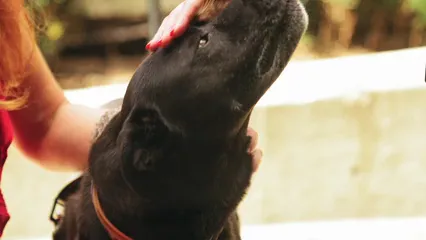
Understanding Why Dogs Eat Grass
Theories and Research
Instinctual Behavior
Dogs are fascinating creatures with a rich evolutionary history. Their wild ancestors often consumed a varied diet, including plants. This dietary habit might still linger in modern dogs. Research indicates that many wild canines often eat grass and other vegetation. It’s believed this behavior stems from their natural instincts. When dogs nibble on grass, they may be channeling their ancestors’ dietary habits, reminding us that they aren’t just carnivorous hunters.
Common Reasons for Grass Consumption
Nutritional Needs
Sometimes, dogs eat grass because they’re missing something in their diet. Fiber is crucial for digestion, and grass provides a natural source. If a dog’s diet lacks sufficient fiber, it might turn to grass for relief. For instance, a miniature poodle that vomited daily after eating grass stopped this behavior when switched to a high-fiber dry dog food. Monitoring your dog’s food can help prevent these cravings.
Boredom and Curiosity
Have you ever noticed your dog munching on grass during a lazy afternoon? Lack of stimulation can lead to various behaviors, including grass-eating. Dogs are naturally curious, and chewing on grass can be a way for them to explore their environment. To engage your pet, consider interactive dog toys or regular playtime. Keeping their minds busy can reduce the urge to graze on grass.
Pleasure and Taste
Let’s face it: dogs can be picky eaters. But many actually enjoy the taste of grass! Fresh, green grass can be particularly appealing. Seasonal changes might influence their preferences, with dogs showing a penchant for juicy spring grass. So, the next time your dog indulges in a grassy snack, remember they might just be enjoying a tasty treat!
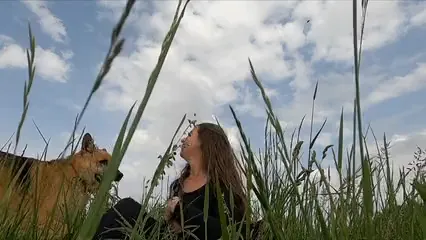
Self-Medication Myth
Grass Consumption as a Cause of Vomiting
One popular belief is that dogs eat grass to induce vomiting. However, studies show that only a small fraction of dogs vomit after eating grass. In fact, research reveals that only about 10% of dogs exhibit signs of illness before consuming grass. Thus, the idea that grass serves as a self-medication method is largely a myth. It’s essential to monitor your dog’s behavior and consult a veterinarian if they show signs of distress.
In summary, understanding why dogs eat grass can help pet owners manage this behavior. While it may stem from instinct, boredom, or even a taste preference, it’s crucial to ensure your dog is healthy and not consuming treated grass. By providing a balanced diet and engaging activities, you can help your furry friend lead a happy, healthy life.
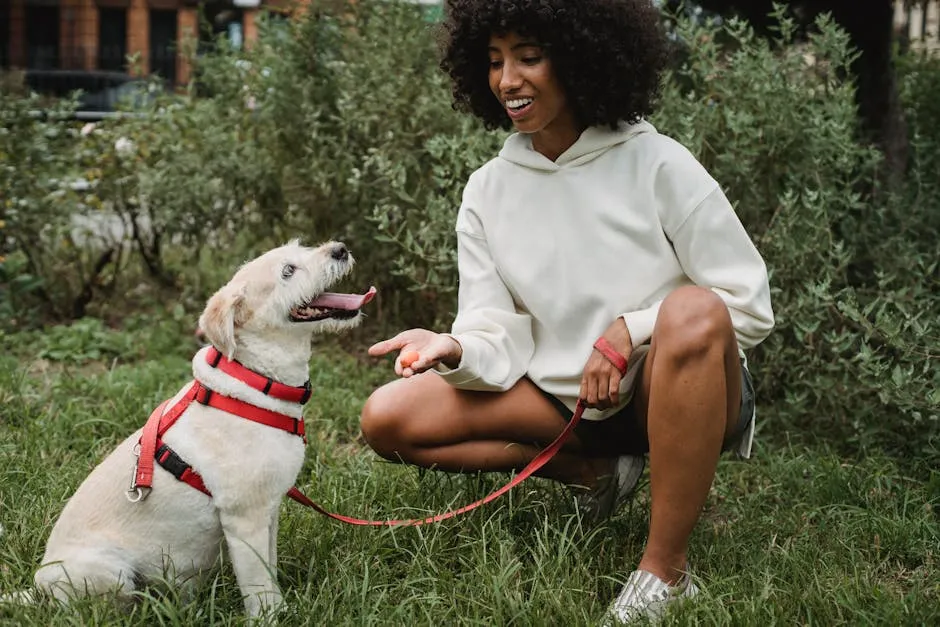
Self-Medication Myth
Grass Consumption as a Cause of Vomiting
It’s a common belief that dogs munch on grass to induce vomiting. However, this idea is more myth than fact. Research shows that only about 10% of dogs appear sick before they start grazing. Even fewer, around 25%, actually vomit afterward. So, if your dog is happily chomping on some blades, it’s likely not due to an upset stomach. In fact, studies indicate that the majority of grass-eating pooches are simply enjoying a tasty snack or seeking some excitement.
Next time you catch your canine companion nibbling on the lawn, remember: not every green snack leads to a green-tinted mess on your carpet. While some dogs may vomit after a grass feast, it’s typically not a sign of illness. Instead, their behavior may stem from curiosity or the need for fiber. If your dog frequently eats grass and shows signs of distress, it’s best to consult a veterinarian.
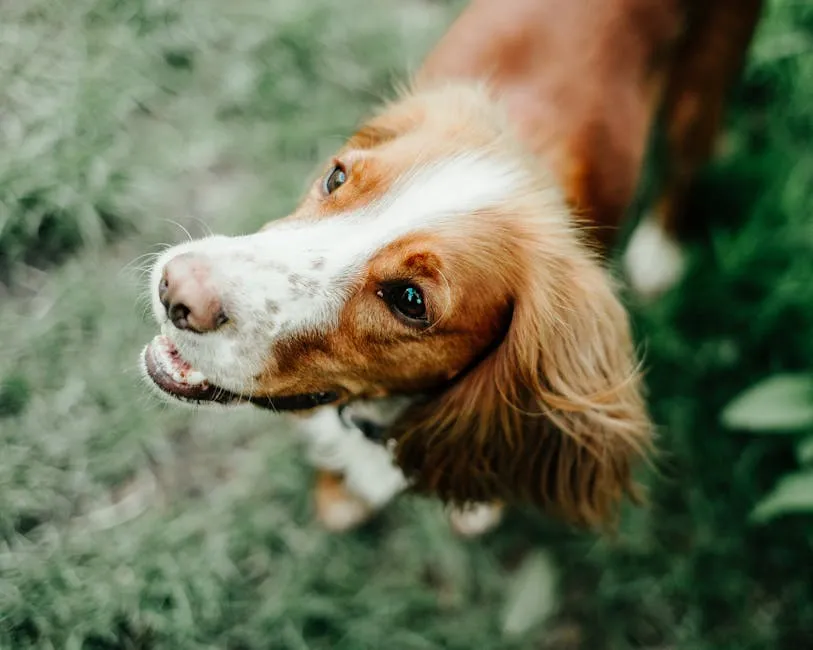
Risks Associated with Grass Eating
Health Risks
Chemical Exposure
While grass eating is often harmless, it poses risks from chemicals like pesticides and herbicides. These substances can lead to severe health problems in dogs. Whenever possible, ensure your dog is grazing on untreated grass. If your yard is treated with chemicals, keep your furry friend away until it’s safe.
To ensure safe grass consumption, consider these tips:
1. Create a designated area for your dog to explore and graze.
2. Use organic lawn care products for lawn maintenance.
3. Research local parks to find chemical-free areas for walks.
By taking these precautions, you can help keep your dog safe while allowing them to enjoy their occasional grass snack.
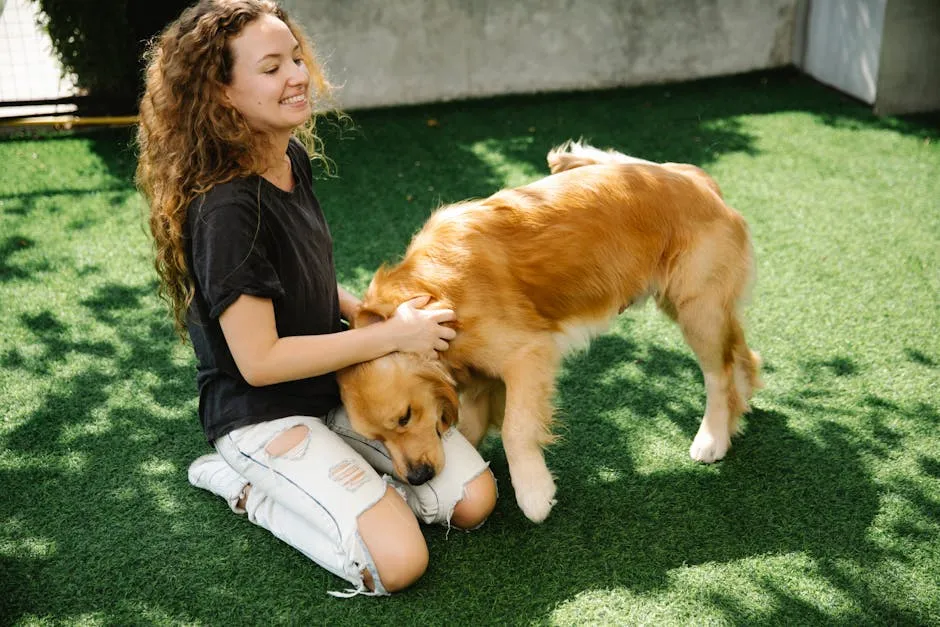
Gastrointestinal Issues
Excessive grass consumption can lead to gastrointestinal problems. If your dog is a frequent grazer, watch for signs of distress. Symptoms to note include vomiting, diarrhea, or lethargy. If you notice these behaviors, monitor them closely. In some cases, eating too much grass can even cause obstructions in the digestive tract.
To prevent these issues, consider the following:
– Limit access to grassy areas where your dog may overindulge.
– Keep an eye on their grazing habits and intervene if necessary.
– Provide a balanced diet rich in fiber to reduce their urge to graze, perhaps with dog vitamins.
Being proactive about your dog’s grass consumption can help ensure their health and happiness.
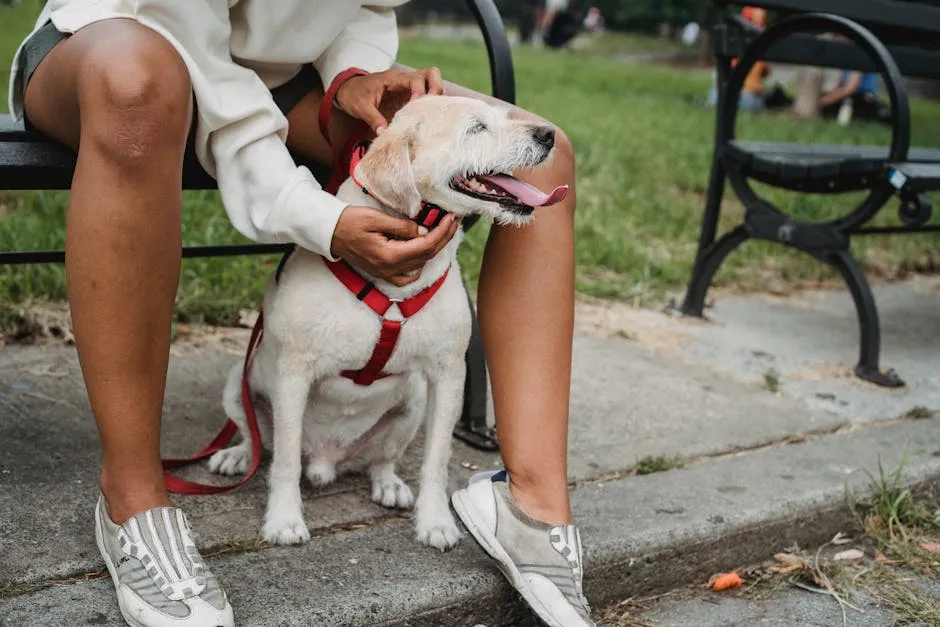
How to Manage Your Dog’s Grass-Eating Behavior
Strategies for Pet Owners
Dietary Adjustments
If your dog is regularly eating grass, it might indicate a dietary deficiency. Dogs need a balanced diet with adequate fiber for digestion. Consider incorporating high-fiber foods or supplements into their meals.
For instance, adding vegetables like carrots or pumpkin can help increase fiber intake. A diet change may also curb their urge to graze. Consult your veterinarian for tailored dietary recommendations. By ensuring your dog’s nutritional needs are met, you can reduce their desire to munch on grass.
In addition to dietary changes, keep your dog engaged with interactive toys and regular exercise. A well-stimulated dog is less likely to seek out grass for entertainment.

Mental and Physical Stimulation
Dogs need both mental and physical stimulation to thrive. Engaging their minds can prevent boredom-driven behaviors, like grass munching. Consider incorporating interactive toys into their playtime. Toys that dispense treats can keep your pup entertained for hours. They’ll have fun figuring out how to get to those tasty rewards! Check out puzzle toys for dogs for some fun options.
Training sessions are another fantastic way to provide stimulation. Teach your dog new tricks or reinforce basic commands. This not only entertains them but also strengthens your bond. Regular exercise routines are crucial as well. Daily walks, runs, or play sessions at the park help burn off excess energy.
Socialization opportunities are equally important. Take your dog to dog parks or arrange playdates with other furry friends. This interaction allows them to engage with other dogs and people. They’ll have a blast and reduce the urge to munch on grass out of boredom.
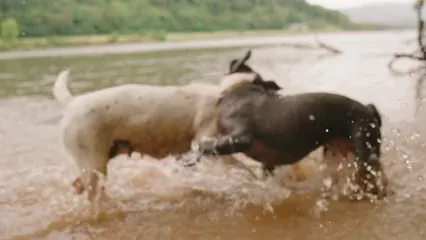
Training Techniques
Training techniques play a vital role in managing your dog’s grass-eating habits. Start by introducing commands like “leave it.” This command can redirect their attention when they start nibbling on grass. Consistent practice can help reinforce this behavior over time.
Positive reinforcement methods are essential as well. Use treats and praise to encourage desirable actions. For instance, if your dog walks away from the grass upon command, reward them! This will help them associate listening to you with positive outcomes. You might want to reward them with grain-free dog treats for good behavior!
Keep training sessions short and fun. Dogs, especially younger ones, have short attention spans. Regular, enjoyable training will help instill good habits while keeping your pup engaged.

When to Consult a Veterinarian
Signs to Look For
Monitoring your dog’s health is crucial, especially regarding their grass-eating habits. If you notice concerning symptoms, it’s time to consult a veterinarian. Signs that warrant a vet visit include excessive vomiting, lethargy, or diarrhea. If your dog refuses to eat their regular meals or shows unusual behavior, don’t hesitate to seek professional help.
Regular check-ups are equally important for overall health. These visits can catch potential issues before they become severe. Your vet can provide tailored advice to ensure your dog’s well-being. Remember, staying proactive about your dog’s health is the best way to keep them happy and thriving!
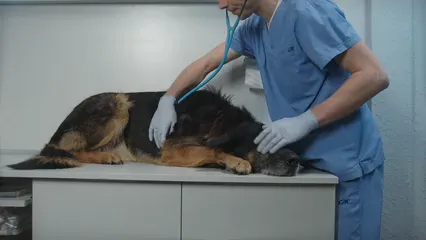
FAQs
Is it safe for my dog to eat grass occasionally?
Yes, it is generally safe for dogs to eat grass occasionally. Many dogs snack on grass without any issues. However, it’s crucial to ensure that the grass hasn’t been treated with harmful chemicals like pesticides or herbicides. These substances can lead to gastrointestinal upset or more severe health issues. If your dog enjoys a bit of grazing, just ensure that their grassy snacks are from a safe and untreated area. Always keep an eye out for signs of distress after they indulge, such as vomiting or diarrhea, and consult with your veterinarian if you’re concerned.
Why does my dog eat grass and then vomit?
Dogs often eat grass for various reasons, and vomiting can sometimes follow. While some believe dogs munch on grass to induce vomiting, research suggests that only a small percentage of dogs vomit after eating grass. In fact, less than 10% show signs of illness before grazing. If your dog eats grass and then vomits frequently, it may be a sign of an underlying stomach issue or dietary imbalance. Monitor their behavior and seek veterinary advice if this becomes a regular occurrence or if they exhibit any other concerning symptoms.
Can eating grass be harmful to dogs?
Eating grass is typically not harmful to dogs, but there are exceptions. If the grass is treated with harmful chemicals, it can lead to serious health issues. Additionally, excessive grass consumption can cause gastrointestinal problems or blockages, especially if your dog is also eating non-food items. If you notice your dog eating grass excessively or showing signs of distress afterward, it’s wise to consult with a veterinarian. They can help determine if there is an underlying health concern that needs addressing.
How can I stop my dog from eating grass?
If your dog is frequently munching on grass and you want to curb this behavior, there are several strategies you can try. Start by ensuring they receive a balanced diet with enough fiber, which can reduce their urge to graze. Provide plenty of mental and physical stimulation to keep boredom at bay. Engaging your dog with interactive toys, games, and regular exercise can help redirect their attention. Training commands like “leave it” can also be effective in managing their grass-eating habits. Consistency is key, so reinforce positive behaviors and reward them for focusing on more appropriate activities.
What should I do if my dog is obsessed with eating grass?
If your dog seems obsessed with eating grass, it may be time to take action. Begin by evaluating their diet to ensure it meets their nutritional needs. A lack of fiber might be driving them to graze. If dietary deficiencies are not the issue, consider increasing their exercise routine and providing more engaging activities. If you notice this behavior intensifying or if they begin to exhibit signs of anxiety or discomfort, consulting a veterinarian is essential. They can rule out any underlying health issues and provide tailored advice on managing the obsession.
Are there certain types of grass that are better or worse for my dog?
While most grasses are safe for dogs, some types are better than others. Fresh, untreated grass is usually harmless and can be a fun snack for your pup. However, it’s vital to avoid letting them consume grass that has been treated with chemicals or that may harbor parasites. Common grasses like Kentucky bluegrass and fescue are generally safe. It’s best to keep your dog away from ornamental grasses, as some can be toxic. If you’re unsure about the safety of specific grass types, consult with your veterinarian for guidance.
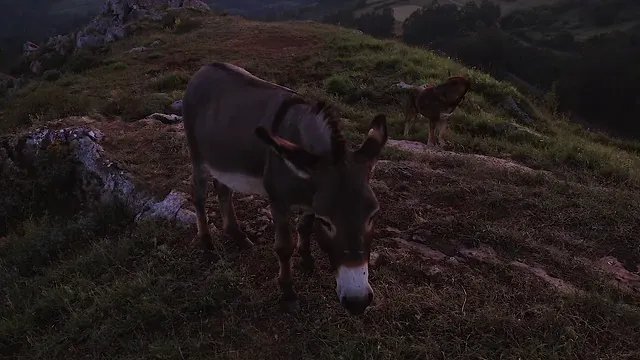
Conclusion
In summary, dogs eating grass is a common behavior rooted in instinct, nutritional needs, and even boredom. While generally harmless, it’s essential for pet owners to monitor their dogs and ensure they aren’t consuming grass treated with harmful chemicals. By providing a balanced diet, ample exercise, and engaging activities, owners can effectively manage this behavior.
Understanding the reasons behind your dog’s grass-grazing habits will help you foster a healthier, happier pet. Keep an eye on their health, and don’t hesitate to consult your veterinarian if you spot anything concerning. With the right care, your furry friend can enjoy life to the fullest, grass and all!
Please let us know what you think about our content by leaving a comment down below!
Thank you for reading till here 🙂
All images from Pexels




